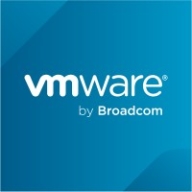

Microsoft Defender for Cloud and VMware Tanzu Platform are key competitors in cloud security, focusing on security and operations within multi-cloud environments. Microsoft Defender for Cloud may hold an advantage due to its seamless integration within the Azure ecosystem, offering comprehensive features that enhance security posture.
Features: Microsoft Defender for Cloud provides comprehensive visibility into security setups, AI and ML-based detections, and seamless integration within the Azure ecosystem, offering daily recommendations and multi-cloud support. VMware Tanzu Platform emphasizes strong integration with vSphere, ESX, and vSAN, providing a unified solution with infrastructure and containerization features, making it effective for managing Kubernetes clusters across multiple clouds.
Room for Improvement: Microsoft Defender for Cloud struggles with false positives and lacks granular control in policy application, with users suggesting better integration with third-party solutions and improvements in automation and user interface consistency. VMware Tanzu Platform could expand its integration capabilities with non-VMware products and develop its feature set to support security architectures like Zero Trust, enhancing support for multi-cloud and hybrid environments.
Ease of Deployment and Customer Service: Microsoft Defender for Cloud benefits from its Azure-native integration across public, private, and hybrid cloud environments, leading to smooth deployments despite varying support experiences. VMware Tanzu Platform is known for robust integration within its ecosystem, supporting hybrid and on-premises setups, though enhanced support and documentation are desired for complex deployments.
Pricing and ROI: Microsoft Defender for Cloud is cost-effective given its deep integration with Azure, offering a good ROI despite complex licensing and perceived high costs for extensive deployments. VMware Tanzu Platform tends to be more expensive, aligning with medium to large enterprises' needs, where strong integration and scalability justify the higher initial investment.
| Product | Market Share (%) |
|---|---|
| VMware Tanzu Platform | 9.2% |
| Microsoft Defender for Cloud | 1.4% |
| Other | 89.4% |


| Company Size | Count |
|---|---|
| Small Business | 27 |
| Midsize Enterprise | 10 |
| Large Enterprise | 49 |
| Company Size | Count |
|---|---|
| Small Business | 10 |
| Midsize Enterprise | 3 |
| Large Enterprise | 10 |
Microsoft Defender for Cloud is a comprehensive security solution that provides advanced threat protection for cloud workloads. It offers real-time visibility into the security posture of cloud environments, enabling organizations to quickly identify and respond to potential threats. With its advanced machine learning capabilities, Microsoft Defender for Cloud can detect and block sophisticated attacks, including zero-day exploits and fileless malware.
The solution also provides automated remediation capabilities, allowing security teams to quickly and easily respond to security incidents. With Microsoft Defender for Cloud, organizations can ensure the security and compliance of their cloud workloads, while reducing the burden on their security teams.
VMware Tanzu Platform is designed for cloud-native development and management of Kubernetes, CI/CD processes, microservices, and containerized workloads. It supports deployments both on cloud and on-premises, providing centralized management via Mission Control.
VMware Tanzu Platform offers seamless integration with vSphere, ESX, and vSAN, supporting centralized cluster management and lifecycle management. The platform provides a GUI for monitoring CI/CD pipelines and network policies, enhancing multi-tenancy and Day 2 operations. Users can easily manage Kubernetes clusters, monitor applications, and integrate with tools such as GitHub, GitLab, Cloud Foundry, and Azure. It ensures compliance and security for service providers, financial institutions, and businesses.
What are the key features of VMware Tanzu Platform?
What benefits and ROI should users look for in VMware Tanzu Platform reviews?
Industries such as financial institutions, service providers, and businesses requiring rigorous compliance and security deploy VMware Tanzu Platform. These entities benefit from centralized management, streamlined DevOps processes, and integrated tools, enhancing their capabilities in cloud-native developments and containerized workloads.
We monitor all Container Management reviews to prevent fraudulent reviews and keep review quality high. We do not post reviews by company employees or direct competitors. We validate each review for authenticity via cross-reference with LinkedIn, and personal follow-up with the reviewer when necessary.